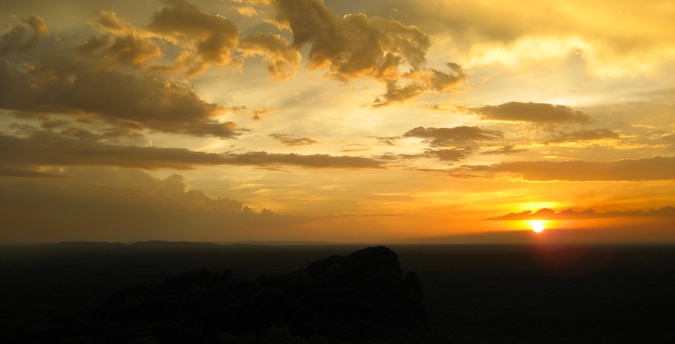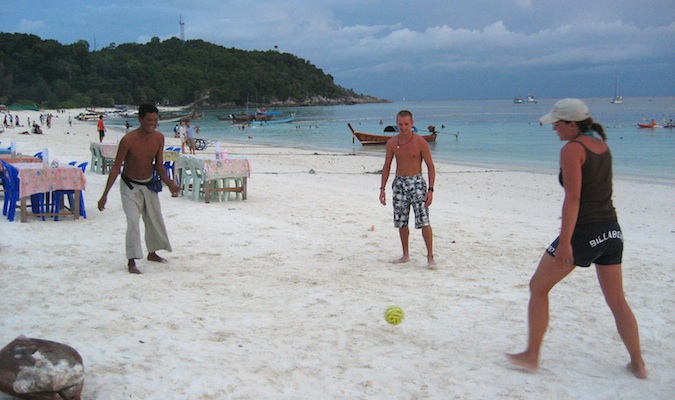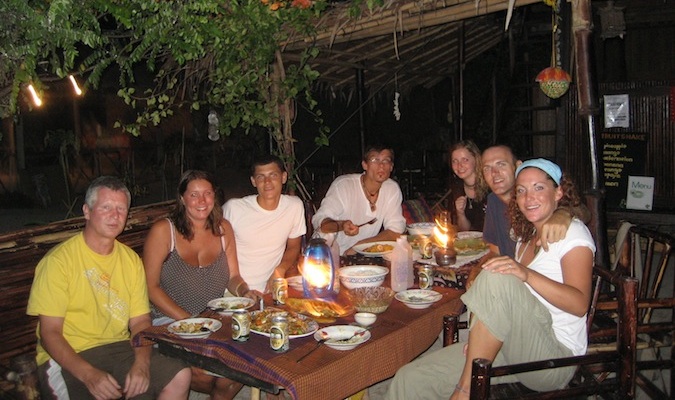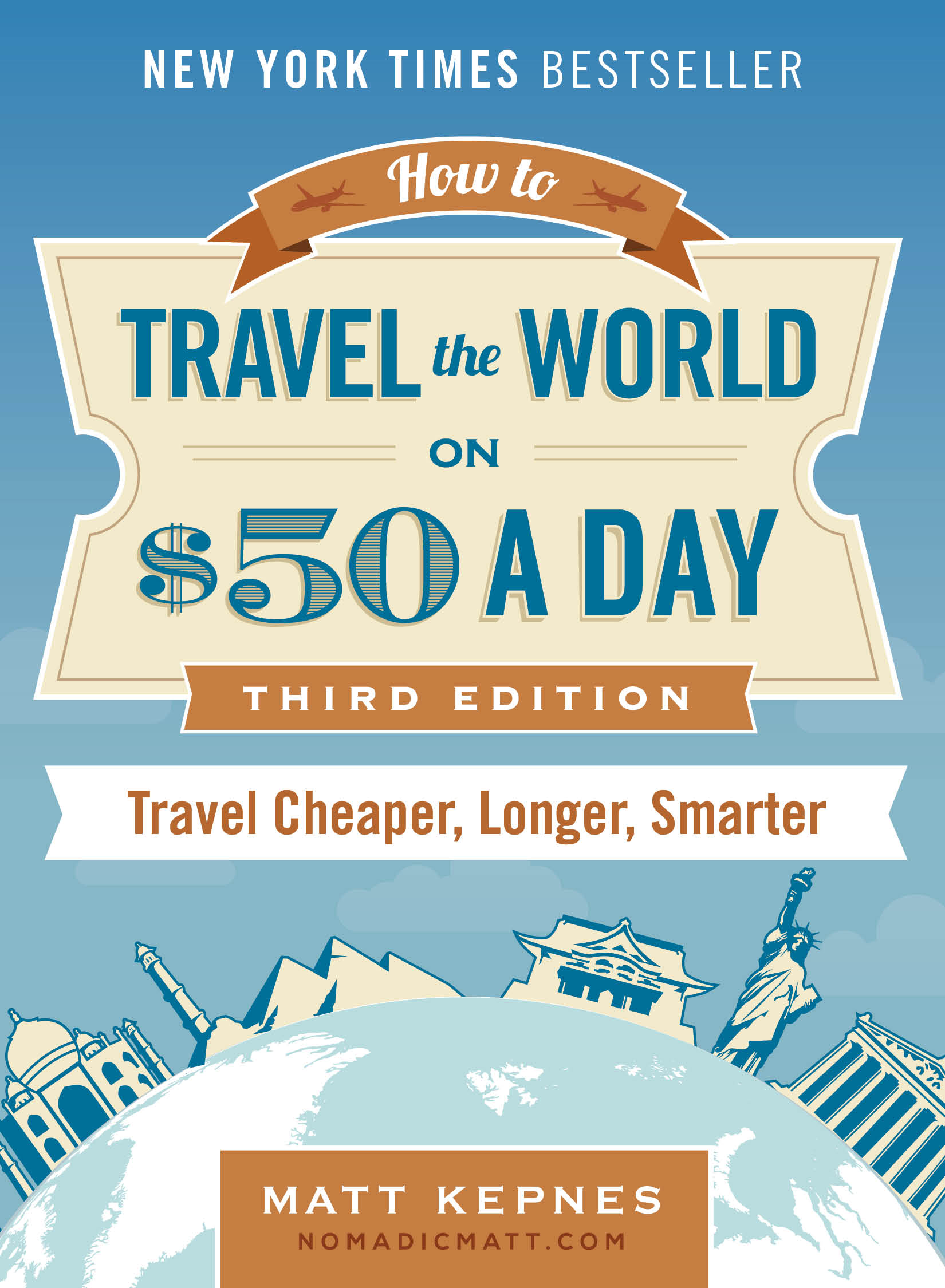 Posted: 12/09/2013 | December 9th, 2013
Posted: 12/09/2013 | December 9th, 2013
As I lay on a beach on the island of Ko Lipe, my Kiwi friend Paul turned to me and asked, “Backgammon?”
“Of course,” I said. “What else is there to do.”
We’d play for hours before heading to our favorite restaurant in the “town center.” The owner would teach us Thai and the local Chao Lay language while laughing at our inability to handle spicy food. We’d laugh along with him, share some jokes, and head back to the beach.
At night, we’d walk barefoot to the island’s main beach, and, with the generators buzzing in the background, drink and smoke with our other friends into the wee hours of the morning.
Then when the generators turned off and we only had starlight to light our way, we would bid each other good night until morning, when we would do it all over again.
 When I first began traveling, I imagined myself as Indiana Jones on the quest for the Holy Grail (definitely not some weird crystal-skull space aliens). My Holy Grail was that perfect travel moment in some off-the-beaten-path city no one had ever visited before. I’d have a chance encounter with a local that would give me a window into the local culture, change my life, and open my eyes to the beauty of humanity.
When I first began traveling, I imagined myself as Indiana Jones on the quest for the Holy Grail (definitely not some weird crystal-skull space aliens). My Holy Grail was that perfect travel moment in some off-the-beaten-path city no one had ever visited before. I’d have a chance encounter with a local that would give me a window into the local culture, change my life, and open my eyes to the beauty of humanity.
In short, I was looking for my version of The Beach.
The Beach was a book published in the 1990s about backpackers in Thailand who, fed up with the commercialization of the backpacker trail in Asia, sought out a more authentic, pristine paradise.
Ko Lipe was an island filled with banana pancakes, Wi-Fi, and tourists. It wasn’t paradise, but it was my paradise.
The Beach exists, but it’s not a particular place or destination; it’s a moment in time when complete strangers from opposite ends of the world come together, share memories, and create bonds that last forever.
You find those moments constantly, and when you do, you begin to realize what travel has been trying to teach you from the beginning:
No matter where you are in the world, we’re exactly the same.

And that simple realization is the most exciting “Aha!” moment you can ever experience.
Before I started traveling, I dreamt that elsewhere in the world the grass was greener. That while I was stuck in my boring office job, people in destinations I only dreamed of were doing wonderful and exciting things.
If only I was there, my life would be better and more exciting.
But traveling around the world has taught me that the grass on your neighbor’s lawn is the exact same shade of green as your own.
The more you travel, the more you realize that daily life and people around the world are exactly the same.
And, in doing so, you come to understand the beauty of our shared humanity.
Everyone wakes up, worries about their kids, their weight, their friends, and their job. They commute. They relax on the weekend. They listen to music and love movies. They laugh, they cry, the worry just like you.
But local culture is simply how different people do things. I love how the French obsess over wine, the Japanese are so polite, Scandinavians love their rules, Thais seem to have a clock that is forever 20 minutes late, and Latin cultures are passionate and fiery.
That is culture. That variety is why I travel.
I want to see how people live life around the world, from the farmers on the Mongolian steppe to the office workers in fast-paced Tokyo to the tribes of the Amazon. What’s the local take on the mundane stuff that I do back home?

We may want to believe that the world is nonstop excitement everywhere but where we are — but it’s not. It’s the same.
I used to live in Bangkok teaching English. While I had flexible hours, I still dealt with commutes, bills, landlords, wearing suits to work, and everything else that comes with an office job. I got together with friends after work for dinner and drinks and did it all over again the next day.
There I was, continents away from home, and it was like I was back in that cubicle in Boston all over again.
The day-to-day life of people halfway across the world is no different than yours.
On Ko Lipe, the locals would take their kids to school before opening their shops. They’d talk to us about their hopes and dreams, and they’d complain when not enough tourists got off the boat. We’d attend birthday parties, trade language lessons, and head out fishing with them. There was a routine to their lives.
You’ll find people doing things differently wherever you are. Sure, it’s fun eating on the Seine, sailing the Greek islands, or racing a motorcycle around Hanoi. But locals aren’t doing that every day. They’re simply living their lives, just like you are right now.

As tourists, we often gaze upon other cultures as if looking at a museum exhibit, gawking at people and how they do things. “Isn’t that funny,” we might say. “How weird they eat so late.” “It makes no sense to do it that way.”
But to me, those cultural differences are simply like the little quirks of a friend, no more or less exciting than your own (but sometimes much more interesting).
When you realize how alike our lives are, you realize we’re all in this together. You no longer see people as some “other,” but instead recognize yourself in them — the same struggles, hopes, dreams, and desires you have, they have for themselves.
And so, when an interviewer asked me last week about the greatest thing traveling the world has taught me, my mind instantly raced through all those moments on Ko Lipe, and without hesitation, I replied:
“We’re all the same.”
How to Travel the World on $50 a Day
 My New York Times best-selling paperback guide to world travel will teach you how to master the art of travel save money, get off the beaten path, and have a more local, richer travel experiences. Click here to learn more about the book, how it can help you, and you can start reading it today!
My New York Times best-selling paperback guide to world travel will teach you how to master the art of travel save money, get off the beaten path, and have a more local, richer travel experiences. Click here to learn more about the book, how it can help you, and you can start reading it today!
没有评论:
发表评论